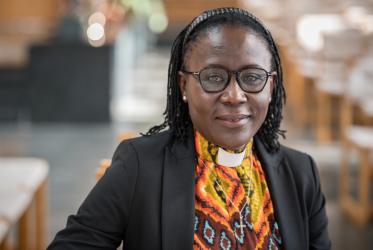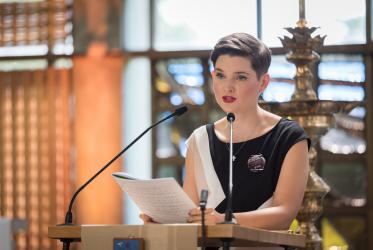Displaying 1 - 20 of 23
What can churches do to prevent modern slavery?
22 February 2024
Ellyanne Chlystun-Githae Wanjiku to COP28: “listen more to children”
13 December 2023
ACT Alliance general secretary: “equity is not negotiable”
26 September 2023
Chateau de Bossey thriving as lives are transformed
08 September 2023
Pandemic and pedagogy: what are the valuable lessons?
21 December 2022



















